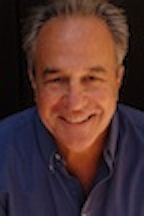Political activist Mark Rudd has been bucking the system since the 1960s. This veteran of the war at home has tried it all, from non-violence to armed resistance, from high-profile demonstration to underground flight with plenty of reflection in between. In the battle for social justice, Mark Rudd is experienced. But experience does not always prepare one for the future…or the present.
After “growing up absurd” in middle-class New Jersey, Rudd attended Columbia University where he joined a vibrant new political-action group called Students for a Democratic Society (SDS). As the blowback from the Vietnam war touched down on American campuses, a radicalized Rudd helped shut down Columbia University for its complicity with the war machine.
Along with thousands of other activists Rudd fought and lost the bloody struggle to persuade timid Democratic candidates to add an antiwar plank to their 1968 presidential election platform.
By 1969, Rudd and many of his compatriots had reached the boiling point. They had tried everything: strikes, boycotts, protests, demonstrations, mass arrests, street theater, courtroom drama, even party politics but…to what end?
Angry and frustrated, Rudd and a small group of hard-liners threw out a challenge to their brothers and sisters in SDS and the broader New Left movement: Drop the burnt-out tactics of non-violence and civil disobedience. It was time to move forward…quickly and by any means necessary.
Rudd and his compatriots decided to move from protest and arrest to resistance and armed struggle. First dubbed Weatherman, this revolutionary guerrilla group broke into isolated cells that planted and detonated dozens of bombs in federal buildings, court houses, and war-research laboratories nationwide.
They eluded a top-priority program (CointelPro) set up by the FBI to destroy the Weather Underground and the Black Panther party. Rudd remained a federal fugitive until 1977.
Today, Rudd has resumed his role as an out-front political activist. An adamant advocate of non-violent, civil disobedience, he often prefaces calls to action with comparisons to the political movements of the 1960s. "What's hard to understand,” he writes in a 2005 Los Angeles Times op-ed piece, “is why the antiwar movement isn't further along than it is…"
“The antiwar movement…,” he wrote in 2007, “has hit a plateau since the [Iraq] war began in 2003…. Nor is there a countercultural movement today that questions authority like the one that emerged in the 1960s and 1970s."
Rudd may be justified in comparing the present with the past. Many of us remember the energy, intensity, and change fomented by 1960s political activism. It was real. It came from the heart, made sense, and blew people’s minds. It was in your face.
Where are the demos today? Where are slogans and the freaks in the street? Where is the loud, crazy energy of resistance, rebellion, and revolution that permeated those times? Considering the state of the nation today, a return to the passionate, outlandish tactics of the 1960s might serve as an antidote to the current decline and fall of just about everything.
“If all of us ‘gray-hairs’ were to tell our stories,” Rudd wrote in 2005, “we might be able to …help people find hope in this dark time." A noble sentiment from a dedicated 1960s warrior. However…
The past, although connected, does not necessarily bear comparison with the present.
The radical political movements of the 1960s were top-down movements. Anti-war, feminist, and early save-our-planet campaigns were largely developed by educated, campus-based activists whose principal goal was to bring the word to the people. Believing that knowledge is power, they preached the evils of capitalism, imperialism, racism, sexism, and the abuse of social justice, hoping the word they spread would translate into mass action.
There were successes. The New Left, the politicos, the freaks -- however you wish to characterize them -- brought about positive change for minorities and women, the environment, our health and welfare, even our spirits.
(Note: You can view every article as one long page if you sign up as an Advocate Member, or higher).





